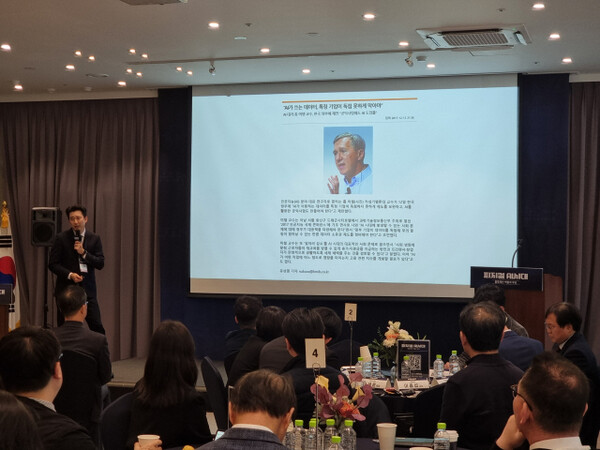
It is expected that combining artificial intelligence (AI) and blockchain in Busan could create new global collaborative synergy in cultural content industries such as movies, games, and tourism. Additionally, it is anticipated that data-based demand forecasting and trust-based systems can be established in port logistics and fisheries sectors.
Busan Techno Park held a seminar on the theme of 'Physical AI Era, the Role of Blockchain and Busan' on the afternoon of the 27th at Busan City Hotel. In the keynote speech, Professor Lee Jong-seop from Seoul National University Graduate School of Business stated, "The center of AI competition is shifting from algorithms to data" and "Blockchain is a technology that makes data sources transparent and enables compensation for providers."
The professor viewed Busan's cultural content industry as a specific example of AI and blockchain convergence. He said, "Busan is a city where film festivals and global events are concentrated. When K-contents such as movies, games, and tourism are digitized, they all become 'K-IP' (knowledge assets based on Korean content)." He added, "If we record the data of ideas, planning, production, and distribution processes on a blockchain and tokenize contributions, global creators will naturally participate in Busan-based projects." In this structure, everyone who contributes to the content ecosystem would be recognized for their rights based on data, and Busan could leap forward as a K-content central city.
Regarding the fisheries and logistics sectors, the professor explained, "As a traditional port city, Busan requires real-time data flow of cargo volume, freshness, and inventory." He continued, "AI will be used for demand forecasting, while blockchain will manage predictions reliably." In the distribution process of seafood, where freshness and traceability are crucial, it is essential to record IoT-collected data on the blockchain. By processing this data for AI utilization, transparency and efficiency across the supply chain can be improved.
Other presenters also introduced convergence cases and possibilities of AI and blockchain. Park Gyeong-cheol from Busan Port Authority shared smart port construction cases. Kim Ho-won from Smart M2M introduced the possibility of applying Physical AI with 3D simulation platforms and reality-reflecting models in manufacturing sites. Lee Se-yun from Marina Chain revealed electronic bills of lading and AI-based transportation prediction systems in shipping and logistics industries. Dr. Choi Seon-mi from the Electronics and Telecommunications Research Institute emphasized that blockchain and AI technology convergence is particularly necessary in medical, disaster, and financial sectors.








